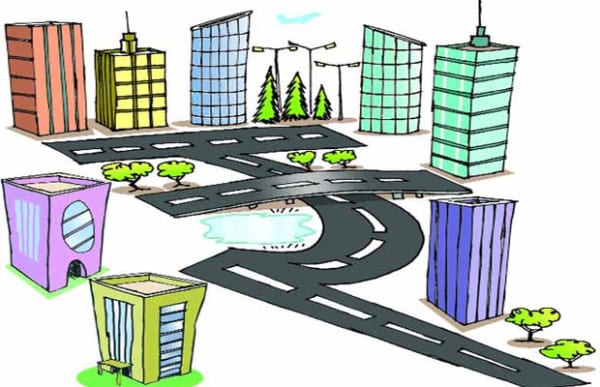The Centre has rolled out the ambitious Smart City project and hoped that it will attract investment to boost the economy.
“The Smart City project requires investment and I can assure you it will be a safe investment,” Union Urban Development Minister M Venkaiah Naidu said assuring the prospective investors in the project.
Government has announced Rs 48,000 crore for development of 100 Smart cities out of which 98 names were declared and rest two will be nominated in due course.
States/UTs and Urban Local Bodies have to make an equal matching contribution. This in effect means that central and state governments and ULBs will invest Rs 96,000 crore over the next five years for making 100 chosen cities smart, Naidu said.
UD Ministry will provide Rs 100 crore per city per year over the next five years.
Naidu, however, said additional resources have to be mobilised from other sources including collection of user fees, beneficiary charges, land monetisation, debts and loans to execute the project.
“Borrowings from financial institutions, accessing National Investment and Infrastructure Fund and from private sector through PPPs are also options available for the project,” the UD minister added.
He said Smart City Mission has unleashed an unprecedented enthusiasm and expectations both within and outside the country.
“More than a dozen leading countries have expressed keen interest to associate themselves with this Mission which include US, UK, France, Spain, Germany, the Netherlands, Sweden, Japan, China, Singapore, Israel, Australia.
“World’s leading technology solution providers have been keenly awaiting the unveiling of the contours of the Mission. Our own private sector is looking forward to take advantage of the investment opportunities,” he said.
Smart City Plans will be implemented by a Special Purpose Vehicle to be set up for each identified city to enable a focused effort for effective implementation. States/UTs and Urban Local Bodies will have 50 : 50 equity in SPV.
“Private sector can also be roped in with equity, the management control remaining with States/UTs,” Naidu said.
Describing the concept, Naidu said “A Smart City would ensure core infrastructure and give a decent quality of life to the citizens and enable a clean and sustainable environment and application of smart solutions.”
The core infrastructure elements in the Smart City context have been identified as adequate water supply, assured electricity supply, sanitation including solid waste management, efficient urban mobility and public transport, affordable housing, especially for the poor.
Robust IT connectivity and digitization, good governance, especially e-governance and citizen participation, sustainable environment, safety and security of citizens and health and education are also core infrastructure elements.
He said the prime objective is to enhance the quality of urban life by addressing deficiencies in core infrastructure required for better living in our context .
He, however, said expectations in various quarters may be high but the Mission is very practical and realistic in its intentions and objectives.
Asking the main stakeholders like states and Urban Local Bodies (ULBs) to “perform or perish” he said, “The ball is now in the court of States and ULB to take full advantage of this enthusiasm by being appropriately pro-active. The next 10 years are very crucial for re-writing our urban landscape. We can’t afford to miss this opportunity. The clock has begun to tick.”
